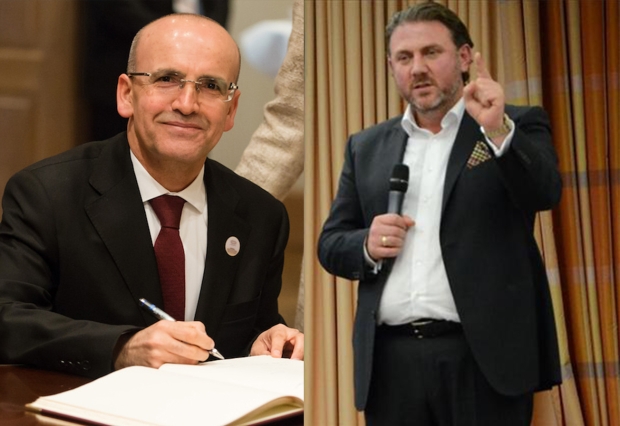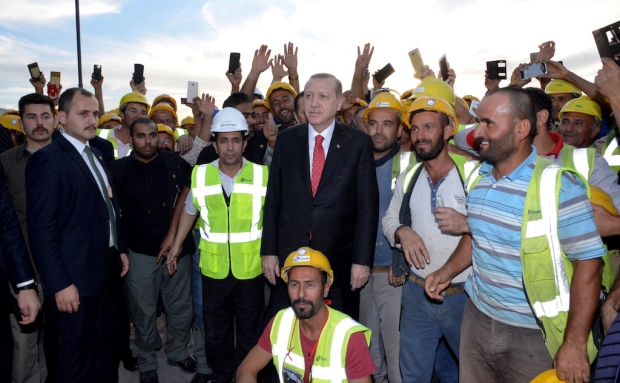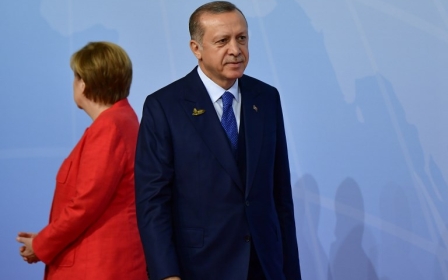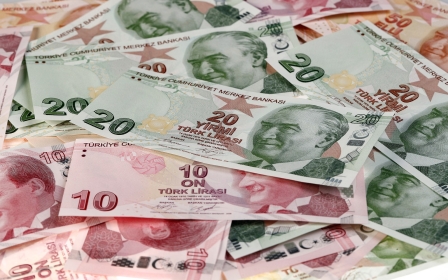Erdogan's inner circle spar over future of Turkish economy
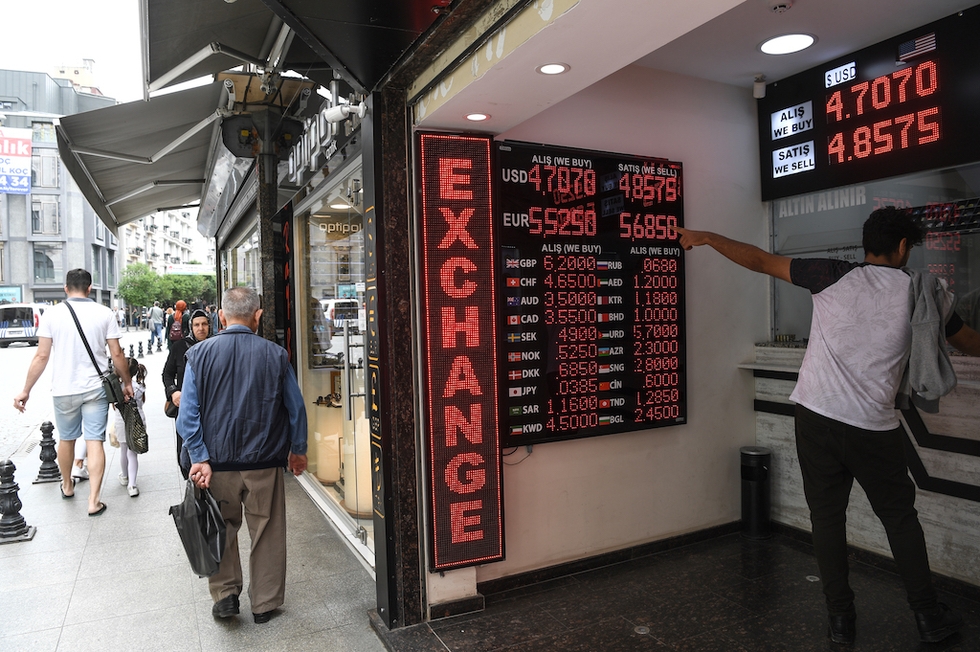
As voters in Turkey and abroad watched with anticipation, elation and dread as the results from presidential and parliamentary elections trickled in on 25 June, among the most anxious were financial analysts and economists, who feared what the outcome might do the country's already fragile economy.
With inflation and youth unemployment rising and the lira crashing against the dollar, President Recep Tayyip Erdogan had alarmed the financial markets (and caused a further lira tumble) after warning in May that he was set to take greater control of Turkey's central bank in order to prevent "the mother of all evil" - high interest rates.
"When the people fall into difficulties because of monetary policies, who are they going to hold accountable?" he said in an interview with Bloomberg.
"They’ll hold the president accountable. Since they'll ask the president about it, we have to give off the image of a president who's influential on monetary policies."
Shortly after the investor panic provoked by the comments, the central bank went ahead and belatedly raised one of its primary lending rates, while Erdogan advisers stepped forward to assure observers that central bank independence was "fundamental".
But the conflict over interest rates playing out in public reflects arguments taking place within Erdogan's inner circle.
Erdogan's allies are divided into two major camps over the economy and interests rates in particular. One camp is led by (at the moment) Deputy Prime Minister Mehmet Simsek. An ethnic Kurd who was previously chief economist for the Europe, Middle East and Africa region at Merrill Lynch, Simsek is the most avowedly orthodox economic thinker in Erdogan's retinue and has been the primary force behind pushing Erdogan to accept higher interest rates.
Following the moves by the central bank to attempt to stymie the fall of the lira, Simsek called on Twitter for Turkey to "restore monetary policy credibility and regain investor confidence".
"The central bank governor and members of the monetary policy committee have my full backing in doing what's necessary to stem the slide in lira and achieve price stability."
The other camp has been responsible for advocating theories largely dismissed by mainstream economists, such as Erdogan's apparent belief that low interest rates provoke lower inflation. The figure in this camp who provokes the most anxiety for Turkey watchers, as well as for other AKP leaders, is Yigit Bulut.
Bulut has long been known in Turkey for pushing some of the most bizarre and outlandish conspiracy theories and pseudoscience circulating in the news media. Among his previous theories are that foreign chefs are spies, that protesters have tried to kill Erdogan with telekinesis, that the US-based cleric Fethullah Gulen had a "deep connection" to the 9/11 attacks, and - perhaps most influentially - that a foreign "interest rates lobby" has been attempting to sabotage the Turkish economy.
Bulut's views are apparently regarded as so outlandish that a leaked email, taken by hackers from the email account of Energy Minister Berat Albayrak, revealed that Mustafa Varank, another Erdogan adviser, had described Bulut as a "time bomb that needs to be removed from screens" and had begged for him not to be given airtime.
Between Bulut and Simsek's camps, a "cold war" has developed, with the Turkish economy, and Erdogan's plans on what to do with it, caught in the middle.
"Clearly, there are two alternative ways forward that are very different from each other," said Gulcin Ozkan, professor of economics at the University of York.
"Given the worsening of the Turkish economy, if Erdogan chooses to make good his election promises to play a bigger role in economic policy, that would obviously be very problematic and would be perceived to be very problematic by the markets given the external finance requirements at this point in time."
'Days of doom and gloom'
Erdogan has long boasted of the Turkish economy's eye-wateringly high growth figures, the highest in the G20 group. Although analysts have expressed fears that the economy was "overheating," high growth figures have helped to boost support for the Turkish government.
One of the main sectors driving this growth has been a strong drive in infrastructure building by the Turkish government which has, in the past 15 years, seen large areas of the country transformed, with skyscrapers, shopping malls, roads, bridges and tunnels all springing up, often transforming previous underdeveloped rural areas into new business hubs.
However, fears are growing that a sharp rise in interest rates, which Simsek and his ilk say is necessary now to prevent economic collapse, could bring the construction boom to a grinding halt.
The latest sector report from the Association of Turkish Construction Material Producers (IMSAD), released last month, said that there was a need for "tight fiscal and monetary policies" following the election, and warned that "at least a 6-12 month slowdown in the construction sector will be inevitable, depending on the severity of the tightening policies to be implemented".
Erdogan had touted a number of "megaprojects" prior to the election, most notoriously the construction of a new canal through Istanbul which is set to cost $13bn and potentially displace thousands of people and threaten the city's water supply. The AKP's election manifesto included a 35-page appendix listing new construction projects, including hospitals, ports, roads and tunnels.
Low borrowing costs have been an integral part of the construction boom - another reason for Erdogan's opposition to raising rates.
"The sharp rate hikes will help the economy rebalance - in other words, to slow down. The real concern is around the severity of this landing," said Oguz Erkel, a financial analyst and editor of TurkishMarketNews.com.
"Turkey is now entering an era when its economy is already set to perform weakly in a definitely not so business-friendly rate environment. We might see this taking its toll on the construction sector, which has been the one working leg of the economy over the past several years."
"Losing one of its main pillars, the Turkish economy would potentially be headed towards days of doom and gloom."
Erdogan the 'pragmatist'?
Ultimately, for all his rhetoric, Erdogan has regularly proved himself to be a pragmatist even in spite of apparently hardline positions.
Ozkan said that despite previous pledges, the Turkish government knows it needs to raise around $200bn on the international markets to keep the economy afloat, and it would be very hard to do this if they chose to throttle the central bank.
"I think they will reassess and they will understand that given the reliance on financing in external markets, it will be very difficult if they chose to do that, so they are going to have to find a midway, and where this midway way ends up being is going to be the key," she explained.
On 5 July Prime Minister Binali Yildirim (soon to have his position abolished) announced that the primary goal of the new government, which has yet to be formed, would be to keep both inflation and interest rates low.
With Erdogan set to be sworn in as president on Saturday and announce his cabinet two days later, many will be waiting on tenterhooks to see which faction of his team manages to win out.
Middle East Eye propose une couverture et une analyse indépendantes et incomparables du Moyen-Orient, de l’Afrique du Nord et d’autres régions du monde. Pour en savoir plus sur la reprise de ce contenu et les frais qui s’appliquent, veuillez remplir ce formulaire [en anglais]. Pour en savoir plus sur MEE, cliquez ici [en anglais].


